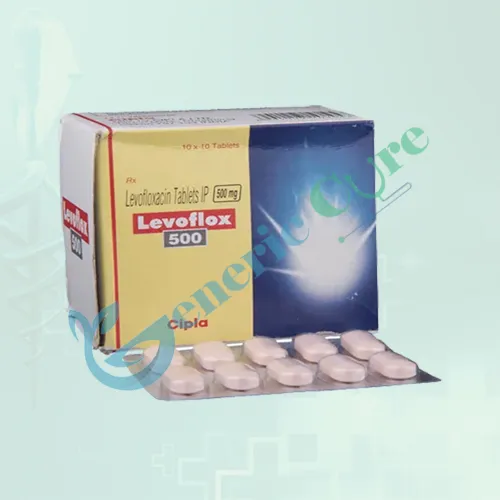Sirolimus 1 Mg (Rapamycin)
$100.00 – $320.00
| Tablet | Price | Quantity | |
|---|---|---|---|
| 30 Tablets/s | $100.00 | ||
| 60 Tablet/s | $180.00 | ||
| 120 Tablet/s | $320.00 |
Description
Sirolimus 1 Mg is a medication use primarily to prevent the body from rejecting transplanted organs, particularly after kidney transplants. It belongs to a class of drugs known as immunosuppressants, which help to lower the immune response. Here’s a deep dive into various aspects of Sirolimus 1 mg, explained in a human-friendly, pointwise manner.
What is the Purpose and Uses of Sirolimus 1 Mg?
- Organ Transplantation: Sirolimus is most commonly prescribe after organ transplants to prevent the immune system from attacking the new organ. This is crucial for maintaining the function and longevity of the transplanted organ.
- Kidney Transplants: While it can use in various types of transplants, Sirolimus is particularly common after kidney transplants.
- Other Uses: It has potential off-label uses, such as treating certain types of cancer (like renal cell carcinoma) and a rare lung disease called lymphangioleiomyomatosis (LAM).
Mechanism of Action
- mTOR Inhibitor: Sirolimus works by inhibiting the mammalian target of rapamycin (mTOR), a protein that regulates cell growth, proliferation, and survival.
- Immune Suppression: By inhibiting mTOR, Sirolimus reduces the activity of T cells and B cells, which are critical components of the immune response. This suppression helps in preventing the body from rejecting the transplanted organ.
- Antiproliferative Effects: The drug also has antiproliferative properties, meaning it can slow down or stop the growth of cells, which is why it’s being explore as a treatment for some cancers.
If you need to buy Rituximab 500 Mg you can purchase now our Generic Cure medicine.
Sirolimus 1 Mg Dosage and Administration
- Standard Dosage: Sirolimus often start at a dose of 1 mg per day, but the exact dosage can vary based on factors such as the type of transplant, patient weight, and other individual considerations.
- Monitoring: Regular blood tests are essential to monitor Sirolimus levels in the body, ensuring they are within a therapeutic range and minimizing side effects.
- Combination Therapy: It’s often use in combination with other immunosuppressants like cyclosporine or tacrolimus to provide a balanced immune suppression.
Pharmacokinetics
- Absorption: After oral administration, Sirolimus is absorbing in the gastrointestinal tract. The presence of food can affect its absorption, so it’s usually recommend to take it consistently with or without food.
- Metabolism: The drug metabolizes in the liver by the CYP3A4 enzyme.
- Half-life: Sirolimus has a long half-life, typically ranging from 57 to 63 hours, meaning it stays in the body for an extend period and is usually doses once daily.
- Excretion: It is primarily excrete in the feces, with only a small percentage eliminate through urine.
What are the Side Effects of Sirolimus 1 Mg?
- Common Side Effects:
- Infections: Since it suppresses the immune system, Sirolimus increases the risk of infections.
- High Cholesterol and Triglycerides: It can lead to elevated blood lipid levels, which may require treatment with lipid-lowering agents.
- Mouth Ulcers: These are a frequent complaint among patients taking Sirolimus.
- Delayed Wound Healing: Sirolimus can slow down the body’s ability to heal wounds.
- Serious Side Effects:
- Liver Damage: It can cause liver problems, which might be serious and need close monitoring.
- Lung Issues: Some patients develop lung problems like interstitial lung disease, which can be severe.
- Blood Disorders: There’s a risk of developing conditions like thrombocytopenia (low platelet count) or anemia.
Drug Interactions
- CYP3A4 Inhibitors and Inducers: Sirolimus is metabolized by the CYP3A4 enzyme, so drugs that inhibit or induce this enzyme can affect Sirolimus levels. For example, grapefruit juice can increase Sirolimus levels by inhibiting CYP3A4.
- Other Immunosuppressants: Combining Sirolimus with other immunosuppressants like cyclosporine or tacrolimus can increase the risk of side effects and requires careful monitoring.
- Antibiotics and Antifungals: Some antibiotics (e.g., erythromycin) and antifungals (e.g., ketoconazole) can also interact with Sirolimus, altering its effectiveness or increasing side effects.
Precautions and Warnings
- Infection Risk: Due to its immunosuppressive nature, patients on Sirolimus must be vigilant about infections. This includes regular check-ups and avoiding contact with people who have contagious illnesses.
- Cancer Risk: Long-term use of immunosuppressants like Sirolimus may increase the risk of certain cancers, particularly skin cancer and lymphoma.
- Pregnancy and Breastfeeding: Sirolimus is generally not recommended during pregnancy due to potential risks to the fetus. Women of childbearing age should use effective contraception while on Sirolimus and for 12 weeks after stopping it. Breastfeeding is also discourage while taking the medication.
Monitoring and Follow-up
- Regular Blood Tests: Patients need frequent blood tests to monitor kidney function, blood counts, and drug levels.
- Lipid Monitoring: Regular lipid panels are important since Sirolimus can raise cholesterol and triglycerides.
- Liver Function Tests: Liver enzymes should monitor regularly to detect any early signs of liver damage.
- Skin Examinations: Regular skin checks by a healthcare provider are recommend due to the increase risk of skin cancer.
Storage and Handling
- Storage Conditions: Sirolimus should be stored at room temperature, away from moisture and heat. It should be kept in its original container and out of reach of children.
- Handling: Handling the medication with clean, dry hands is important. Do not crush or chew the tablets, as this could affect the drug’s absorption and efficacy.
Other Pills:
Valganciclovir 450 mg | Artemisinin 100 mg | Xarelto 10 Mg Tablet (Rivaroxaban) | Xarelto 15 Mg Tablet (Rivaroxaban) | Xarelto 20 Mg Tablet (Rivaroxaban)
Additional information
| Tablet | 30 Tablets/s, 60 Tablet/s, 120 Tablet/s |
|---|---|
| Active Ingredient: | rapamycin |
| Manufacturer | KACHELA |
| Strength | 1 Mg |
| Delivery Time | 6 To 15 days |









Reviews
There are no reviews yet.